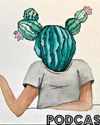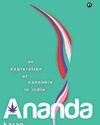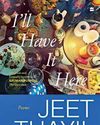Once a child left for dead, now an award-winning author, Manoranjan Byapari’s life is an astonishing survival saga

January 2018, Chennai. The stage is set for The Hindu Prize 2018 for non-fiction. Five outstanding books from over 500 entries have been shortlisted. Each of the authors is widely celebrated, barring one. So when the outlier’s work, Interrogating My Chandal Life— An Autobiography of a Dalit, is announced as the winner, it is a moment in Indian literary history. Receiving the award, author Manoranjan Byapari, now 69, normally tenaciously unsentimental, breaks down into his gamchha, which he wears around his neck as a symbol of his identity. Many in the audience, his wife Manju among them, struggle to fight back tears. “The joy is not mine alone, but that of all those who are hated and discriminated against. The respect I received here made me cry,” Byapari said later.
Byapari was born in 1950 into a family of fisherfolk in the lush Barisal district (in today’s Bangladesh). As namashudras, the lowest rung of the Dalit people, his family had little to lose, but the derangement of Partition took their home as well. The Byaparis were herded into a truck, along with at least 30 other families, and transported to refugee camps in the badlands of West Bengal. Memories of that terrifying journey—being bumped around in the vehicle in the searing heat, the air clouded with red dust from the tracks, a baby being born en route and an old man dying on the truck—were burnt into the brain of the 4-year-old.
Esta historia es de la edición August 2019 de Reader's Digest India.
Comience su prueba gratuita de Magzter GOLD de 7 días para acceder a miles de historias premium seleccionadas y a más de 9,000 revistas y periódicos.
Ya eres suscriptor ? Conectar
Esta historia es de la edición August 2019 de Reader's Digest India.
Comience su prueba gratuita de Magzter GOLD de 7 días para acceder a miles de historias premium seleccionadas y a más de 9,000 revistas y periódicos.
Ya eres suscriptor? Conectar

ME & MY SHELF
Siddharth Kapila is a lawyer turned writer whose writing has focussed on issues surrounding Hinduism. His debut book, Tripping Down the Ganga: A Son's Exploration of Faith (Speaking Tiger) traces his seven-year-long journey along India's holiest river and his explorations into the nature of faith among believers and skeptics alike.

EMBEDDED FROM NPR
For all its flaws and shortcomings, some of which have come under the spotlight in recent years, NPR makes some of the best hardcore journalistic podcasts ever.

ANURAG MINUS VERMA PODCAST
Interview podcasts live and die not just on the strengths of the interviewer but also the range of participating guests.

WE'RE NOT KIDDING WITH MEHDI & FRIENDS
Since his exit from MSNBC, star anchor and journalist Mehdi Hasan has gone on to found Zeteo, an all-new media startup focussing on both news and analysis.

Ananda: An Exploration of Cannabis in India by Karan Madhok (Aleph)
Karan Madhok's Ananda is a lively, three-dimensional exploration of India's past and present relationship with cannabis.

I'll Have it Here: Poems by Jeet Thayil, (Fourth Estate)
For over three decades now, Jeet Thayil has been one of India's pre-eminent Englishlanguage poets.

Orbital by Samantha Harvey (Penguin Random House India)
Samantha Harvey became the latest winner of the Booker Prize last month for Orbital, a short, sharp shock of a novel about a group of astronauts aboard the International Space Station for a long-term mission.

She Defied All the Odds
When doctors told the McCoombes that spina bifida would severely limit their daughter's life, they refused to listen. So did the little girl

DO YOU DARE?
Two Danish businesswomen want us to start eating insects. It's good for the environment, but can consumers get over the yuck factor?

Searching for Santa Claus
Santa lives at the North Pole, right? Don't say that to the people of Rovaniemi in northern Finland